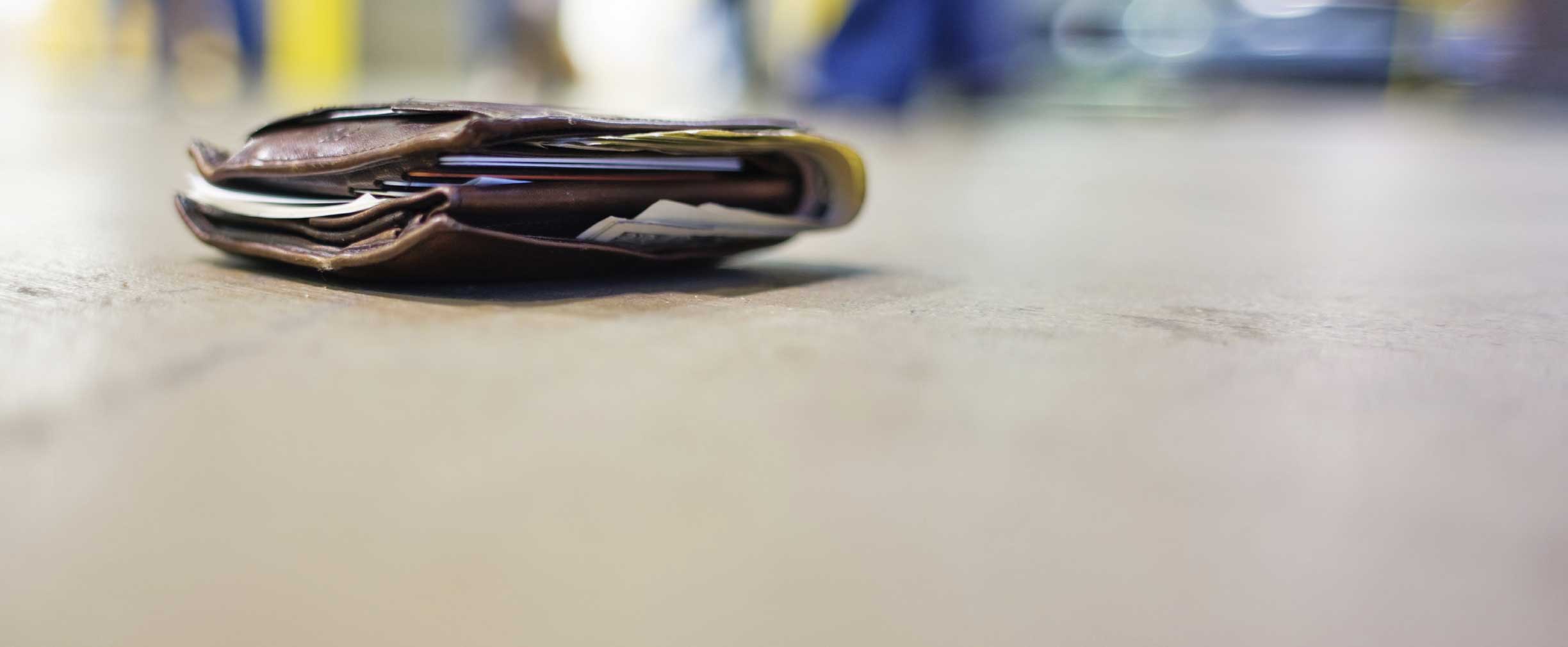Losing your wallet is a hassle at best and an identity theft nightmare at worst. If you lose your wallet, do these 10 things right away to help protect yourself and get back on track.
1. Confirm whether your wallet is lost or stolen.
Look for your wallet — it might be in your house, car, or office. Even if you left it at a store or restaurant, a good Samaritan might be holding it for you. In the meantime, move ahead with the other items on this list.
2. Report credit cards lost or stolen.
Call all of your credit card companies and report the cards lost or stolen. They’ll suspend the old cards and send you replacements with new numbers. There are federal regulations to protect consumers who report the loss or theft within a particular period of time, and many card companies won’t hold card members responsible for fraudulent spending if the loss or theft is reported promptly. So act quickly.
If you think your card is simply misplaced, you can have the issuer suspend your account. If the card turns up, you can unfreeze the account, which is less of a hassle than getting a new card.
3. Alert your bank.
If checks or a debit card were in your wallet, tell your bank they were lost or stolen. They can suspend or cancel your card, watch for fraudulent charges, and issue you a replacement debit card with a new number.
4. Call the police.
If you believe your wallet was stolen, file a police report as soon as possible. If you become the victim of identity theft or a slew of fraudulent charges, you’ll need evidence that you filed one right away.
5. Report your driver’s license missing at the DMV.
To prevent identity theft, the DMV will reissue you a license with a new number.
6. Change your locks if you had a key in your wallet.
If you carry a house key in your wallet, the person who finds it also has your address from your driver’s license.
7. Call the Social Security Administration and the Internal Revenue Service.
It’s not recommended to keep your Social Security card in your wallet, but if you do and it was stolen or lost, call the SSA and the IRS Identity Protection Unit to inform them.
8. Monitor your credit reports.
Check with the credit reporting agencies — Equifax, Experian, and TransUnion — to make sure there are no fraudulent charges or new accounts on your report.
9. Carry less information.
When you get your new cards, consider the items you need to bring when you leave the house. If you routinely use one credit card, leave the rest safely at home, along with identifying information such as your Social Security card or passport. (Learn ways to protect your personal information at home.) Keep your house key separate from your wallet. And never keep a PIN in your wallet, as you may be liable for resulting transactions.
10. Create a list of all your cards.
For future reference, make a list of your cards, and keep it in a secure place — not your wallet — for reference. This list shouldn’t contain account numbers, but rather should catalog your cards and the issuers’ contact information so you can easily report lost or stolen cards in the future.
Acting quickly after your wallet is lost or stolen is vital to preventing credit card fraud and keeping your identity — and your finances — firmly in your control.










